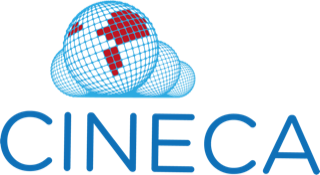EUCAN-Connect
A federated FAIR platform enabling large-scale analysis of high-value cohort data connecting Europe and Canada in personalized health
EUCAN-Connect will enable large-scale integrated cohort data analysis for personalized and preventive healthcare across EU and Canada. This will be based on an open, scalable data platform for cohorts, researchers and networks, incorporating FAIR principles (Findable, Accessible, Interoperable, Reusable) for optimal reuse of existing data, and building on maturing federated technologies, with sensitive data kept locally and only results being shared and integrated, in line with key ELSI and governance guidelines.
Coordinating institution:
Start & End dates: 1 January 2019 - 31 December 2023
iReceptor Plus
Architecture and tools for the query of antibody and t-cell receptor sequencing data repositories for enabling improved personalized medicine and immunotherapy
iReceptor Plus aims to facilitate the sharing of AIRR-seq data among multiple institutions for a better understanding of the causes of infectious and autoimmune diseases and cancer. Its consortium of researchers from EU and Canada will address several key challenges to the optimal sharing of AIRR-seq data among public and industrial partners, such as patient privacy, intellectual property, data integration and harmonisation, to support early detection, identification of novel therapies and possibly reduce the social and economic burden of these diseases worldwide.
Coordinating institution:
Start & End dates: 1 January 2019 - 31 December 2022
EUCANCan
European Canadian Cancer Network
EUCANCan aims to build a federated infrastructure across EU and Canada to enable personalized medicine in oncology by the generation and sharing of harmonized genomic and phenotypic data. EUCANCan builds on work performed by its consortium members and related projects to align and interconnect existing infrastructures for the analysis and management of genomic oncology data. The EUCANCan network will be composed of reference nodes in Amsterdam, Barcelona, Berlin, Heidelberg, Paris and Toronto with strong research and clinical programs in the field of genomic oncology.
ReCoDID
Integrated human data repositories for infectious disease-related international cohorts to foster personalized medicine approaches to infectious disease research
ReCoDID builds on existing infrastructures and partnerships to develop a sustainable model for the storage, curation and analyses of the complex data sets collected by infectious disease (ID)-related cohorts. Drawing from best practice and governance elaborated for similar initiatives, the repository will employ a federated model where a tiered permission system and cohort-specific hubs facilitate cohorts’ analysis of their own data, cross-cohort analyses and connections with the open science community within a clearly elaborated legal, ethical, and equitable framework.
Coordinating institution:
Start & End dates: 1 January 2019 - 31 December 2022











